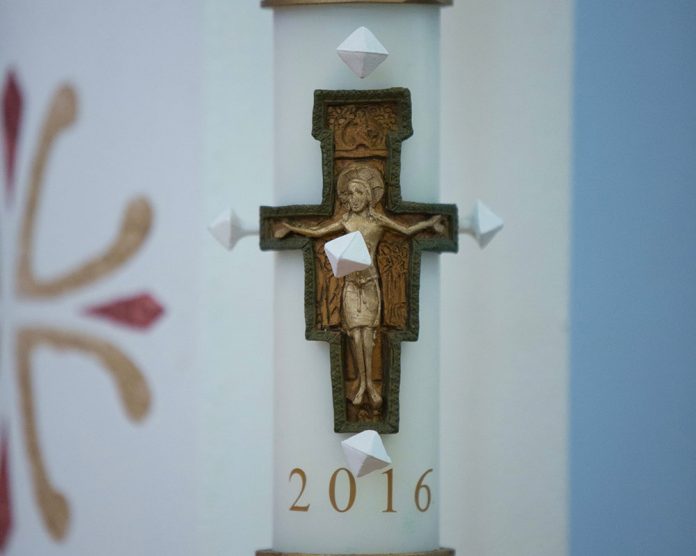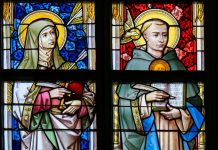
by Cullen Schippe
The older I get the faster time seems to fly by. My race used to be with the clock, but now my race is with the calendar. As the days whiz by, however, my appreciation of the value of that calendar increases.
Everyone marks the year with special events. The year is chock full of holidays and holy days. Not only does every religious tradition use the calendar to mark important events, but nations set aside days for remembrance of important moments of national pride or national mourning—times of triumph and times of tragedy.
Our Church calendar is rich in celebrations as well. The feasts and fasts of the liturgical year do so much more than just mark the passing of time. Each year—from the first Sunday of Advent to the Solemnity of Christ the King—immerses us all in the mystery of salvation. Following the year through the Sunday and daily Mass cycles impresses on us again and again the wonders of creation, the history of salvation, the mystery of the Incarnation, the public life and teaching of Jesus, his suffering and sacrificial death, and his (and with him our) triumph over sin and death. The calendar also conveys to us the lives and examples of the saints.
Because of the rhythms of readings and feasts and events of the year, the calendar is also a catechism, or better a catechetical opportunity. When I was growing up, my mother kept a Catholic calendar in the kitchen. Often over breakfast, she would announce excitedly who the saint of the day was or what mystery was being celebrated. That simple gesture kept us all aware of the role the Church played in our lives. It focused us on the spiritual and helped us establish from a very young age a Catholic identity.
It is quite easy to separate the content of our catechetical message from the seasons and feasts of the year. We all feel the obligation to convey the teaching of the Church and the moral life. Sometimes, however, we forget that down through the centuries, those eternal truths have been handed on in a very sensory fashion—in prayer, celebrations, seasons, feasts, sacraments, and sacramentals.
Over the next couple of months, the students we teach look forward to the Christmas holiday. The excitement they experience is often based not so much on the liturgy or the Scriptures but on the wonders of sight and sound and taste that define the holiday.
So starting with the greatly secularized celebration of Halloween to the “dreams of sugar plums” that Christmas promises, the excitement mounts. There was a movement (and it recurs often enough), to curb all preliminary celebration of the holiday and to focus on “putting Christ back into Christmas.” With all the noise society generates around the coming weeks, putting a damper on the celebration is virtually impossible.
There is an alternative, however. We can link the excitement to the celebrations and saints’ days on the calendar, as well as the liturgy of Advent, and use them to mark this time of expectation with reminders of the real reason for the celebration.
Between now and Christmas, we celebrate three great feasts of Mary, our Mother—the Presentation; the Immaculate Conception, patroness of the United States; and the feast of Our Lady of Guadalupe, patroness of the Americas. We celebrate St. Andrew, the Apostle; St. Francis Xavier, the great missionary; and St. Nicholas, the prototype for Santa Claus.
It takes just a little effort for us to first and foremost keep ourselves centered on the mysteries of the season, and then for us to share those mysteries with the ones we teach.
Holy days and holidays need not be at odds. The most secular of celebrations can be an opportunity for sharing faith. The weaving of society’s holidays and the church’s celebrations can weave a tapestry that demonstrates the sacredness of time, the eagerness of the pilgrim’s journey, and the companionship of the members of Christ’s Body. Together we can share the joy of the Gospel, and remember that Jesus is the way, the truth, and the life.
Cullen Schippe has been in Catholic publishing for well over 40 years and currently serves as Pflaum publisher. Email Cullen at cullen.schippe@bayard-inc.com.
Copyright 2015, Bayard, Inc. All rights reserved. This article is protected by United States copyright and other intellectual property laws and may not be reproduced, rewritten, distributed, redisseminated, transmitted, displayed, published or broadcast, directly or indirectly, in any medium without the prior written permission of Bayard, Inc.




